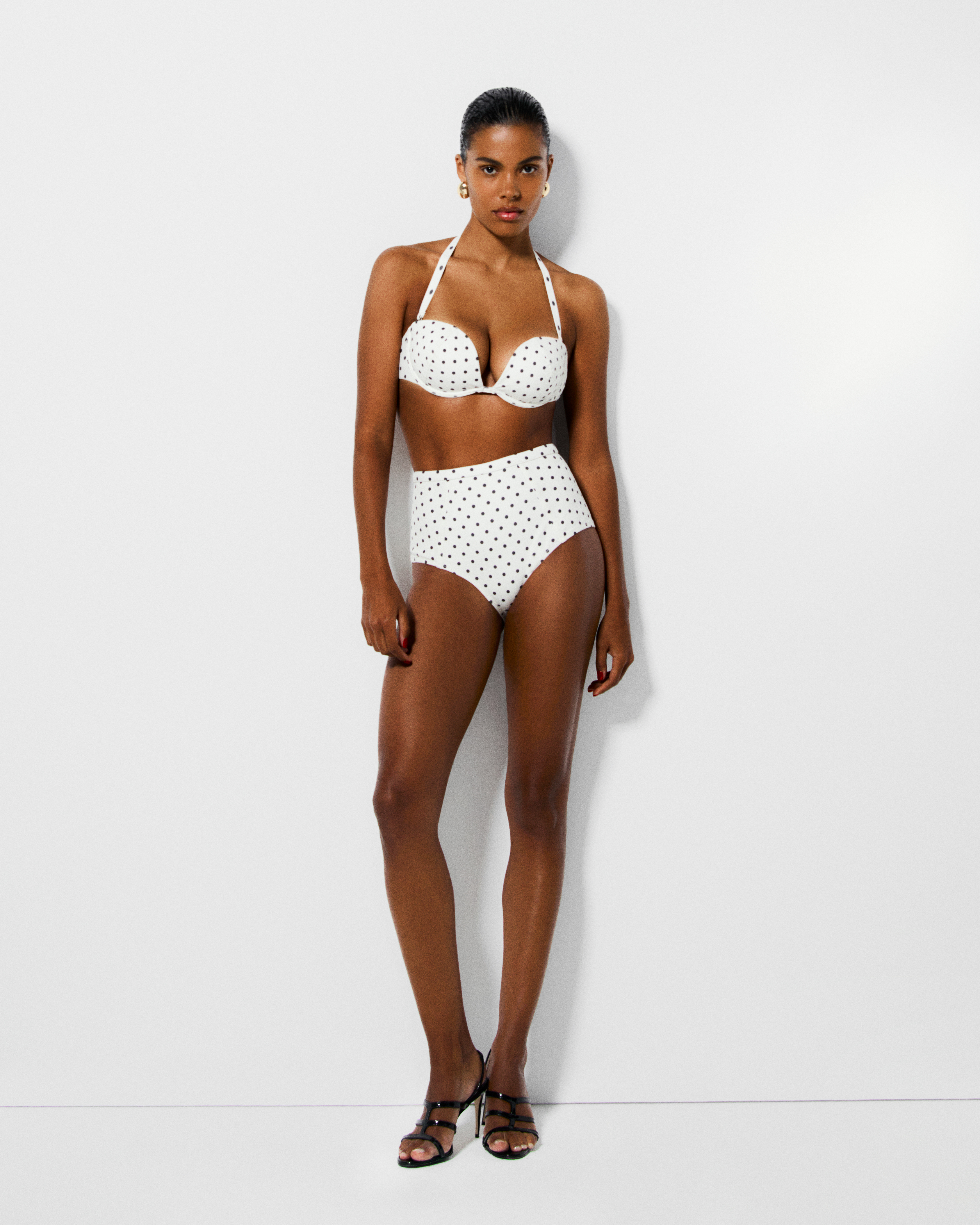
People had a lot to say about Reformation's first swimsuits in 2019. Fashion outlets called them "the most Instagrammable." Shoppers who had built the brand's cult following, alongside celebrities including Selena Gomez, Taylor Swift, and Kendall Jenner, called the high-rise bikini bottoms and deep V-neck one-pieces "dreams," "goals," and, in one hyper-enthusiastic Instagram comment, "everything."
Reformation's own team probably agreed with those first impression reviews. Still, they labeled the collection's Econyl fabric, a regenerated nylon-substitute made from plastic bottles, "not sustainable enough." Then after selling through the initial drops, Reformation retired its swimwear section entirely.
Flash forward nearly five years: Reformation is now bringing back swim, this time with materials the brand says it can more confidently stand behind.

Like the first collection, Ref Swim 2.0 trades in photogenic bikinis and one-pieces pulling from a range of vintage references: Old Hollywood glamour with underwire tops and high-waist briefs on one end, early aughts T-shirt tops and itty-bitty athletic bottoms on the other. Some maillots also arrive with layered necklines that bring lingerie dressing to the beach, with the effect of a bra peeking out from beneath a polka-dot or solid black top. (Sizes run from XS–XL; prices begin at $68 for a bikini top and max out at $168 for select one-pieces.)


The big change that made Reformation feel ready to relaunch is the material composition stamped on each swimsuit's tag. Econyl from the first collection is still present, but only in 20 percent of the lineup (and, it's in the form of fabric reused from the 2019 swim capsule's leftovers). The other 80 percent of the collection is made of a castor bean-derived fabric called Evo.
"This new bio-based material—that's kind of what we think of as a best-in-class step forward for swim," Reformation chief innovation officer Alison Melville tells Marie Claire.

The Evo swimsuits are entirely plant-based; no plastic to be found. That's a notable innovation in swimwear, where most water-resistant pieces are made from fossil-fuel derived (and environment-unfriendly) synthetics like polyester and nylon. "As a brand, we're still trying to walk away from anything that's fossil fuel derived in general and really go toward more renewable resources," Melville says. This collection is 80 percent of the way there, by Reformation's count.
Touching the swimsuits, shoppers will notice a difference between the materials: the Econyl one-pieces have a sleek, athletic feel fit for an Olympic-grade lap pool, while the Evo bikinis have the stretch and softness of a cotton T-shirt.

The collection will also be sold in small quantities. Sustainability-wise, this helps Ref avoid overproduction and piles of unsold bikinis left in its L.A. warehouses. For anyone on the wait list, it means pieces might sell out quickly.
Missing today's launch if it sells out doesn't mean missing swim forever. Melville says the category won't have another fade to black exit, even if the company considers testing new materials. By the brand's metrics, the response last time was too good to abandon forever—and vacation-ready beachwear is in its California DNA.
Swimwear is permanently back, baby. Now that it's out in the world, there's one question left to ask: What will everyone else call it this time?
Reformation swim is available to shop now online and in select stores.







